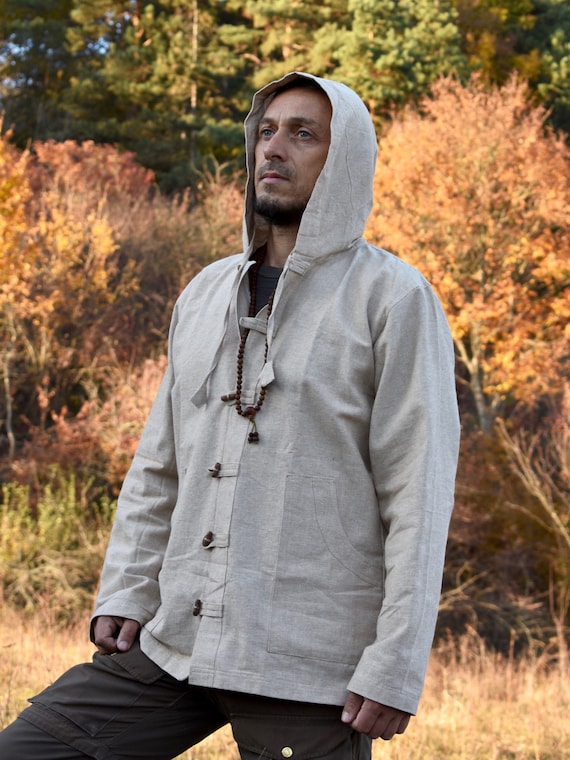Top Reasons On Choosing Hemp Clothing
Wiki Article
Why Is Hemp More Durable, Bidegradable And Regenerative Than Cotton?
Hemp due to its natural properties and the way that it is grown, is considered to be more durable and sustainable than cotton. Here's why- Biodegradability-
Natural Fibers- Hemp, plant-based, natural fiber, is biodegradable. Clothing and textiles made from hemp break down over time. That means they can be returned to nature without leaving any waste. The breakdown of synthetic fibers, such as polyester can take up to hundreds of years.
Hemp fabrics are usually free from synthetic additives, or treatments that inhibit biodegradability. Contrary to this, some cotton textiles are treated with synthetic chemicals such as dyes or finishes that can interfere with biodegradation process.
Durability-
Fiber Strength- Hemp fibers are known for their strength and durability. Hemp textiles and clothing are more resistant to tear and wear which makes them more durable compared to some cotton products. This durability allows hemp garments to endure a greater number of washes and wear cycles with no signs of degradation.
Hemp fabrics tend to be less prone to pill (the formation of a small fuzzy ball that forms on the fabric's surface) as compared to cotton. This attribute contributes to their longevity and overall quality.
Regenerative Agriculture-
Soil Quality - Hemp is a regenerative plant when grown in a sustainable manner. Hemp is able to improve the quality of soil by improving the health of soil. The roots that are deep in hemp can prevent soil erosion. This regenerative element can leave the land in better condition to grow future crops.
Low environmental impact - Sustainable hemp cultivating methods involve the use of a minimal amount of pesticides. Contrary to traditional cotton farming, its use of synthetic chemicals can lead to soil degrading and pollution of the water.
Water Efficiency-
Hemp usually requires less than cotton to thrive. Hemp's drought-resistant properties enable it to flourish even in conditions of minimal rain or irrigation. This makes it more efficient with water, particularly in regions where water resources are limited.
Hemp is a great crop to incorporate into rotational systems. This can help improve the health of soil as well as decrease the likelihood of disease development and soil loss. Crop rotation isn't as prevalent in the traditional cotton farming.
Hemp is a source of versatility. It is able to create a variety of products, such as clothing, paper, building material, and textiles. Hemp's versatility permits it to be used in a wide variety of industries, using sustainable and regenerative techniques.
Although hemp has many benefits, it's essential to be aware that both cotton and hemp are produced either sustainable or not, based on the practices of farming and processing methods used. The benefits for the environment of hemp could be maximized by choosing products that are made ethically and with ecofriendly methods. Organic cotton products are a great way to decrease the impact on the environment of cotton that is conventionally grown. Take a look at the top rated learn more here for hemp clothes for site tips including hemp sportswear, hemp pants mens, patagonia iron forge jacket, hemp jacket, hemp and cotton fabric, hemp underwear, womens hemp clothing, organic hemp fabric, hemp underwear, hemp pants mens and more.

What Are The Functional And Technical Advantages Of Hemp Clothing Over Traditional Fibers?
Hemp clothing is a sustainable alternative that provides many functional and technical benefits over conventional fibers. Here are a few examples of how hemp clothing could be an eco-friendly, high-performance alternative.
Hemp fibers possess a great wicking capacity and are highly permeable, meaning that hemp clothing is comfortable in all conditions. They help to wick away moisture, keeping the wearer cool and dry during hot weather.
Temperature Regulation
Hemp clothing is renowned for its excellent thermoregulatory qualities. It will keep you warm during cold weather by trapping warmth close to your body and help you stay cool in hot weather by allowing heat and water to escape. The natural regulation of temperature reduces the requirement to change clothes.
Durability & Longevity
Hemp fibers have a reputation as being tough. Hemp clothing is generally more durable, resilient and resistant to wear than other fabrics like cotton. That means that hemp clothes are more durable and last for longer. They also can reduce the amount of times you have to replace them, which could have negative effects on the environmental.
UV Protection
Hemp fibers are a natural UV protector, protecting the skin against harmful UV radiation. This feature is particularly beneficial when doing outdoor sports or activities.
Biodegradability:
Hemp clothes are biodegradable, which means it breaks down naturally as it is disposed of. The environmental impact of textiles is decreased due to this property, as opposed synthetic fibers, which could remain in landfills for long periods of time.
Low Environmental Impact-
Hemp farming generally uses less synthetic pesticides and herbicides than traditional cotton. Hemp also uses less water and is therefore a more sustainable alternative. The ecological benefits of organic hemp farming are further enhanced.
Carbon Sequestration
Hemp plants can absorb carbon dioxide from the air in the course of their growth. In turn, hemp cultivation could act as carbon sinks, helping in reducing greenhouse gas levels.
Sustainability and Crop Rotation-
Hemp can be included in crop rotation systems, improving overall soil health and reducing the chance of soil loss and disease buildup. This sustainable farming practice can contribute to the eco-friendly aspects of hemp.
Versatility:
Hemp fibers are a versatile material that blends with organic cotton recycled polyester, or other substances to make sustainable fabrics. This versatility enables the development of innovative, sustainable textile products.
Low Toxicity
Hemp fibres are low in toxicity, by nature, and don't require chemical processing. They reduce the environmental impact of production of textiles.
It's important to note that even though hemp offers a myriad of benefits for the environment and is functional however, the sustainability of clothing is contingent on the dyeing process, transportation, and ethical methods of labor. To help consumers choose environmentally sustainable options they should look for brands that are committed to the environment, transparent manufacturing and ethical business practices. View the best find out more about hemp clothing for website examples including hemp shorts mens, hemp polo shirts, hemp t shirts wholesale, hemp jacket, hemp tees, hemp jacket, clothes made from hemp, hemp sweatshirt, hemp apparel fabric, hemp yoga pants and more.

Bamboo Clothing Is Sustainable And Comfortable.
Bamboo clothing has many advantages for both comfort and environment.
Bamboo fabric is known for its softness. It has a silky smooth texture which feels great against your skin. A lot of people find bamboo clothing extremely soft and comfortable, which makes it a popular option for intimate clothing such as loungewear, activewear, and loungewear.
Breathability Bamboo fibers are naturally breathable and moisture-wicking. Micro-gaps allow for air circulation, which keeps you cool in hot weather. The moisture-wicking properties help pull sweat away from your skin, and reduce the sensation of dampness.
Bamboo clothing has excellent thermoregulation characteristics. It is able to help you stay warm in cooler temperatures because it traps heat close to your skin. In hot weather, it can keep you cool by allowing the excess heat and moisture to escape. Bamboo can adapt to a range of temperatures, it's perfect for any season.
Hypoallergenic bamboo fabric is hypoallergenic, and gentle for skin that is sensitive. It is less likely to cause allergies or cause irritation. This makes it a great option for those suffering from allergies or skin sensitivities.
Bamboo fibers have natural antimicrobial substances that aid in preventing the growth and spread of bacteria that cause odor. This helps bamboo clothing to remain fresh after exercise.
Environment-
Sustainability- Bamboo is an eco-friendly and renewable resource. It is one of the fastest-growing plants around the globe and requires a minimum amount of water as well as the use of herbicides and pesticides in cultivation. Bamboo is harvested without killing it because its root system regenerates.
Bamboo has a low water consumption. It can thrive on minimal irrigation. The rainwater supply is usually sufficient to allow it to grow.
Biodegradability. Bamboo clothing naturally breaks down in time when removed. This property reduces the accumulation of non-biodegradable textile waste in landfills.
Carbon Sequestration Bamboo plants can absorb carbon dioxide (CO2) in the course of rapid growth. Bamboo farming can reduce greenhouse gas emissions and serve as a source of carbon.
Chemical Reduction- The manufacturing and processing of bamboo fabrics typically requires fewer chemicals than some other textiles. This reduces the environmental impact that textile manufacturing produces.
Closed-Loop Process- Certain bamboo fabric processes are closed loop which recycles water as well as chemical waste, while minimizing the amount of waste and pollution.
It is important to keep in mind that the impact on the environment can depend on the manufacturing process, and whether or not the bamboo used for manufacturing was sourced from ethically and sustainably managed bamboo forests. For the best environmental results consumers should select bamboo clothing made with sustainable and ethical methods. View the top rated find about bamboo clothing for site info including bamboo fibre clothing, sustainable bamboo clothing, bamboo shorts womens, bamboo clothing brand, ladies bamboo t shirts, bamboo yoga pants, bamboo clothing, bamboo ladies clothing, bamboo shirt, mens boxer shorts bamboo and more.
